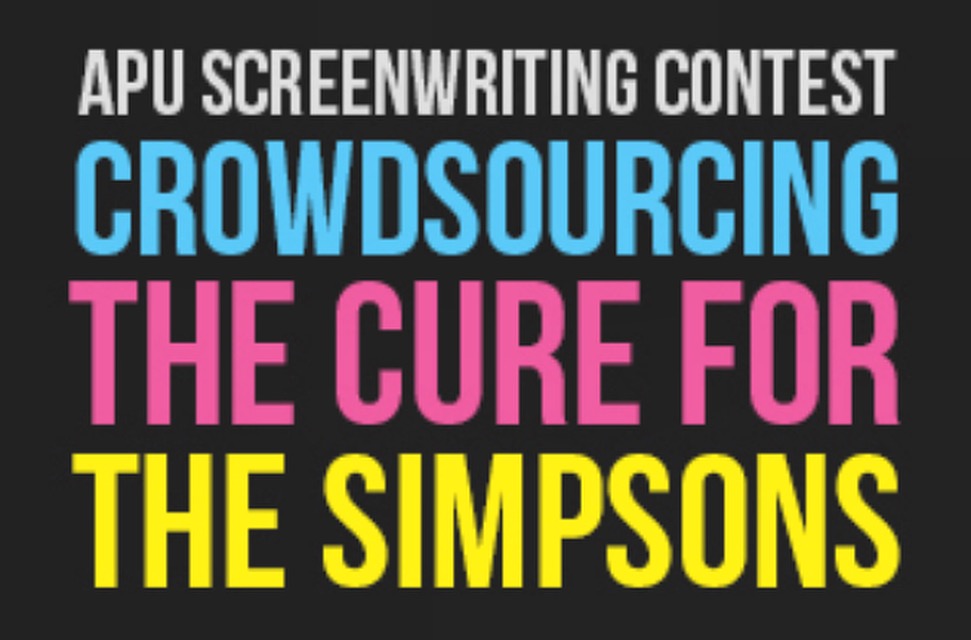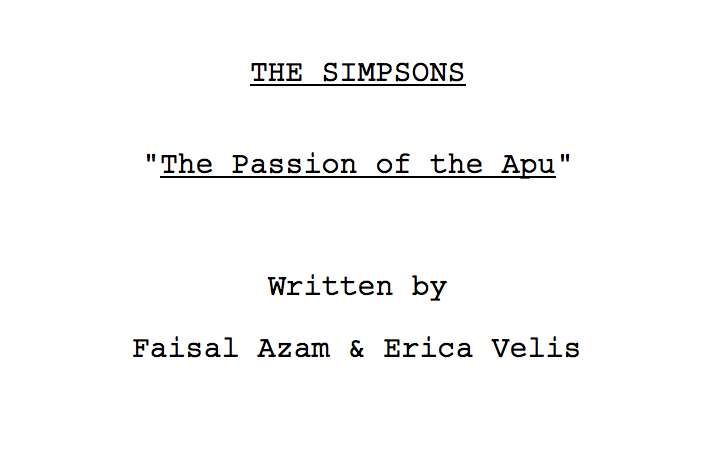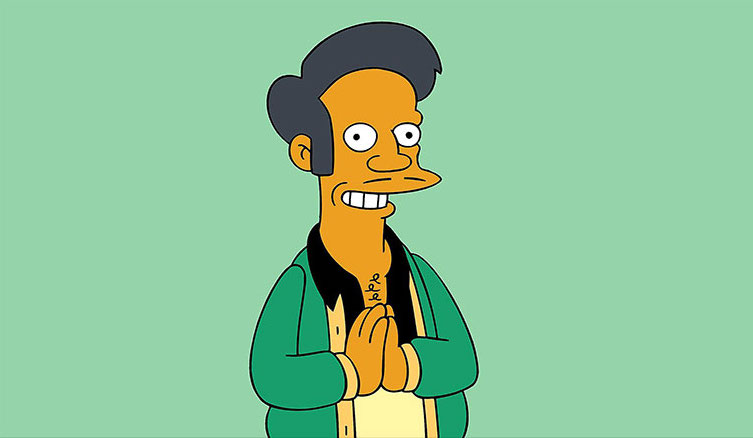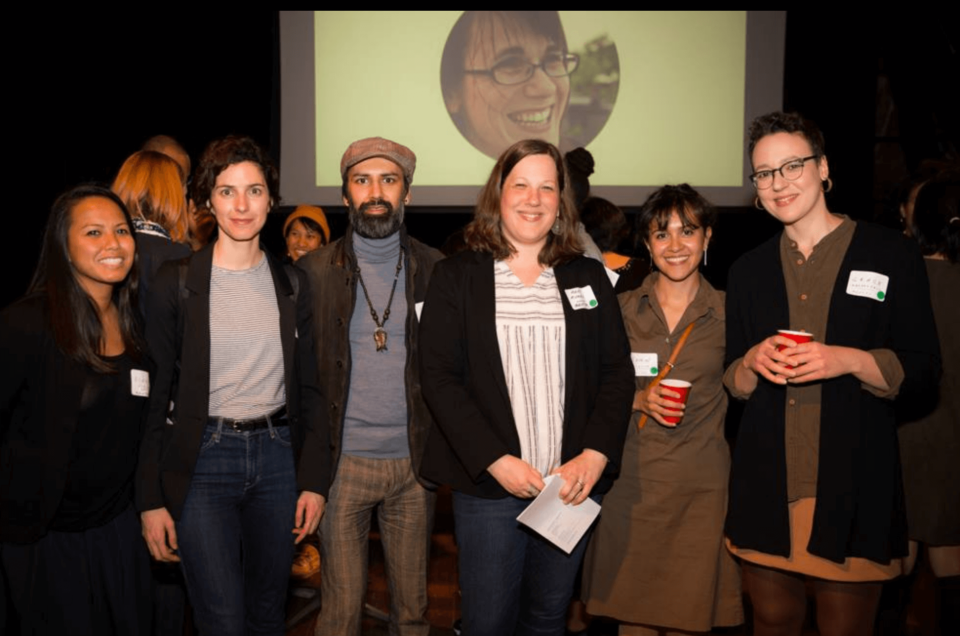In a 2017 interview, Hank Azaria acknowledged some of the criticism when he recalled a conversation with the writers of The Simpsons during the inception of the character: “Right away they were like ‘Can you do an Indian accent and how offensive can you make it?’ basically. I was like, ‘It’s not tremendously accurate. It’s a little, uh, stereotype,’ and they were like, ‘Eh, that’s all right.'”
When controversy gets the best of a popular show, do you kill off the offender or stay the course?
That’s exactly the dilemma showrunner/producer Adi Shankar set out to address when he launched the Apu Screenwriting Contest: Crowdsourcing a Cure for The Simpsons. With the goal of finding a spec script focused on re-imagining the show’s funny-but-kinda-offensive Indian token, Apu Nahasapeemapetilon, Shankar wanted a story set in the world and cannon of The Simpsons that would either cleverly subvert Apu, pivot him, write him out or evolve him in a way that “takes a mean spirited mockery and transforms him into a kernel of truth wrapped in funny insight, AKA actual satire.”
With such a focus on race and upending stereotypes in our work to date—and wanting to do more comedy writing after sitting so long with the heavy subject matter of our pilot, H8—we jumped at the chance to creatively remedy the Apu problem.
The Apu Controversy
Hari Kondabolu’s 2017 documentary The Problem with Apu is what really ignited the dialogue about Apu as a seemingly benign yet troubling South Asian stereotype. Central to the critique was the fact that actor Hank Azaria is not only not Indian himself, but modeled his accent on another white guy’s impression of an Indian guy, Peter Seller’s bumbling, brown-face caricature in The Party, which most South Asians would find deeply offensive today. Azaria’s revelation in the quote opening this post fueled further criticism of the show and, though South Asians were by no means monolithic in their view of Apu (many saying they enjoyed him, accent and all), the dialogue around the subject soon morphed into a full-blown controversy.
Hence, the need for the “Cure for The Simpsons” contest. If the show writers weren’t going to elevate or gracefully write off Apu, maybe a clever outsider could. With a jury composed of South Asians and other minorities who work in entertainment, the contest was the first of its kind. After they determined which story presented the best “cure,” the winning script would be taken by Adi to The Simpsons writers’ room and Fox Broadcasting Company to encourage them to make it an official episode of The Simpsons upcoming season. Adi would also recommend that they hire the winning writer(s) into their room for the next season.

The potential payoff was encouraging and as soon as we began discussing the Apu situation, we were bursting with ideas. In the end, this is what we came up with:
Logline
A stranger comes to Springfield looking for Apu, who has just become a KrustyKoin millionaire.
Our Approach
Our spec script addressed the Apu controversy by elevating and evolving Apu’s character but keeping him as part of the show rather than writing him off. We felt that, though stereotyped, Apu is one of the main supporting characters in The Simpsons and had been a fixture on TV long before any South Asian actors became household names. We thought it would be sad to have the show lose such an iconic character, one of the few minorities in the nearly all-white (or all-yellow, as the animators depict it) town of Springfield.
Additionally, we wanted to introduce a new, “next generation” desi character who would give the show opportunities to explore contemporary South Asian identity in fresh ways. Someone hip, without an Indian accent, whose generational differences with Apu would be apparent and could be mined for on-going story lines. Having a bit of fun with this, we based this new character—a mysterious stranger who rides into Springfield on a motorcycle—on Marlon Brando in The Wild One and peppered the script with beatnik lingo and references, including a scene where we riffed on a passage from Kerouac’s On the Road.
We also wrote in cameos for a number of contemporary South Asian celebs and one specifically for Hari Kondabolu to help diffuse the tension between him and the show with humor. Essentially, it would allow The Simpsons to save face: The show would provide a diplomatic solution that honors the issues Hari raised while staying true to the essence of Apu’s character. It would be a win-win.
Finally, although our script addressed the Apu controversy, we stayed true to the world of The Simpsons by starting the episode with a problem that Homer (and by extension, the family) has, which takes them to Kwik-E-Mart (Apu’s business), and ending with the family on the sofa watching TV. And all throughout we brought in many of the show’s staple supporting characters, from Moe and his barfly patrons to some of our favorites: Captain Horatio, the “comic book guy,” Jeff Albertson, Snake Jailbird and Groundskeeper Willie. The Hindu god Ganesh makes an appearance too.
Whether this was the “cure,” the contest was looking for or not, we had a blast writing it, felt confident in the script and laughed out loud every time we read through it.

Top Ten Finalists
In August, we received an email informing us that the announcement of the finalists would be delayed for a month due to the overwhelming number of entries that were submitted. Actually, it took the committee six weeks to winnow down the list and pick the finalists because they were inundated with so many compelling scripts.
In the end, we, apparently, didn’t come up with the sought-after antidote, but we know we faced stiff competition from many talented writers who put a lot of heart and creativity into solving the Apu problem and we were honored to be among the top ten.
Update
As the contest promised, the winning script was presented to The Simpsons, but it seems they weren’t interested. As rumors have it, the show is taking the coward’s way out of the controversy by quietly writing Apu off, even as they continue to issue ambiguous denials.
However things turn out, the whole series of events—from Hari Kondabolu’s documentary to the public debate and race for the cure that followed—brought new cultural sensitivities to light in a constructive way. This kind of conversation would have been unimaginable 30 years ago when the show began. Perhaps it’s a conversation the creators can’t handle.
















































